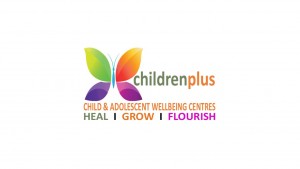Noida, Uttar Pradesh Jun 21, 2023 (Issuewire.com) - Many parents are increasingly concerned as they witness their children struggling to remember simple instructions, feeling tired and confused, and experiencing difficulties in recalling things they used to remember effortlessly. These symptoms may indicate the presence of brain fog, a condition that has gained prominence in recent times. To shed light on this issue and provide practical solutions, Childrenplus, a renowned provider of psychological health services for children and young people, offers valuable insights and support.
Brain fog is a term that encompasses a combination of signs and symptoms persisting for days, weeks, or even months, often following an illness such as Covid. Fatigue, lack of concentration, slowed thinking, confusion, and even physical symptoms like migraines or headaches are common manifestations of brain fog in children and young people. While brain fog has received significant attention as a symptom of "long Covid," it has been recognized as a condition with various causes that affect the body and its interaction with the surrounding environment.
Stress and anxiety emerge as the most common triggers of brain fog. When individuals experience prolonged high levels of stress, their ability to concentrate diminishes, and they often feel unclear or muddled in their minds. The intense pressure faced by children in highly stressful school and competitive environments can significantly impact their concentration, energy levels, and immunity, leading to brain fog. Mr. Vishal Sharma, CEO and co-founder of Childrenplus, emphasizes the harmful effects of prolonged stress, stating, "It can feel like running faster and faster on a hamster wheel when we don't recognize that we are tired until we fall over."
Another contributing factor to brain fog is excessive screen time. In today's digital age, children and teenagers often find themselves glued to their screens, whether it be smartphones or computers. Dr. Amritash Rai, Clinical Director at Childrenplus, highlights the impact of constant exposure to screens, explaining, "There is increasing evidence that the endless small dopamine 'hits' to our brain, along with the hours spent on screens, are impacting our concentration span and energy levels." The content on these devices is designed to provide instant gratification, leading to exhaustion and further exacerbating brain fog symptoms.
Furthermore, brain fog can also be linked to infections, including the aftermath of Covid. Researchers have found that brain fog is one of the most common persistent symptoms following viral infections, such as Covid, even if it was not specifically diagnosed as such. Additionally, individuals with underlying conditions like ADHD, chronic fatigue syndrome, depression, and anxiety are more prone to experiencing brain fog. These disorders place a strain on cognitive faculties and significantly impact various aspects of a child's life.
To address the effects of brain fog and improve concentration, Childrenplus offers practical tips for parents and caregivers. Dr. Rai recommends a holistic approach encapsulated in the acronym DESIST:
Diet: A balanced diet that includes a good mix of protein, fruits, and vegetables can enhance immunity and support healthy brain function. Ensuring a nourished brain is crucial for optimal cognitive abilities.
Exercise: Engaging in regular exercise not only improves cardiovascular health but also releases endorphins that contribute to overall well-being and concentration. Spending time outdoors in the sunshine also provides a valuable source of vitamin D.
Screen time: Studies have shown that excessive screen time, surpassing three hours a day, negatively impacts mental health and well-being. Encouraging breaks from screens and incorporating physical activity into daily routines can mitigate the effects of excessive screen time.
Improve Sleep: Sufficient sleep is vital for a healthy mind. Children should aim for at least 8 to 9 hours of quality sleep per night. Reducing screen time before bedtime and implementing good sleep hygiene practices can promote restful sleep.
Treat illness: Early diagnosis and appropriate treatment of psychological and physical illnesses that contribute to brain fog are crucial. Seeking help from expert psychologists can result in effective therapeutic techniques to improve mood, anxiety, and ultimately alleviate brain fog symptoms.
Childrenplus, with its team of dedicated child psychologists and counsellors, specializes in providing comprehensive psychological health services for children and young people. Dr. Rai affirms, "Choosing the right therapist is essential to creating a sense of hope, applying evidence-based treatments, and helping you and your child navigate through their psychological difficulties with understanding and empathy."
By implementing these lifestyle modifications and seeking professional assistance when needed, parents can support their children in overcoming brain fog and reaching their true potential. Childrenplus offers a collaborative and empathetic approach, ensuring children and young people receive the necessary support to thrive in their cognitive and emotional well-being.
For more information about Childrenplus and their range of psychological health services, visit their official website at www.childrenplus.in.
Media Contact
www.google.com/search?q=childrenplus info@childrenplus.in +918447449331 REGUS, UGF, ASSOTECH BUSINESS CRESTERRA, SECTOR 135, NOIDA. 201301. U.P. INDIA. https://www.childrenplus.in









